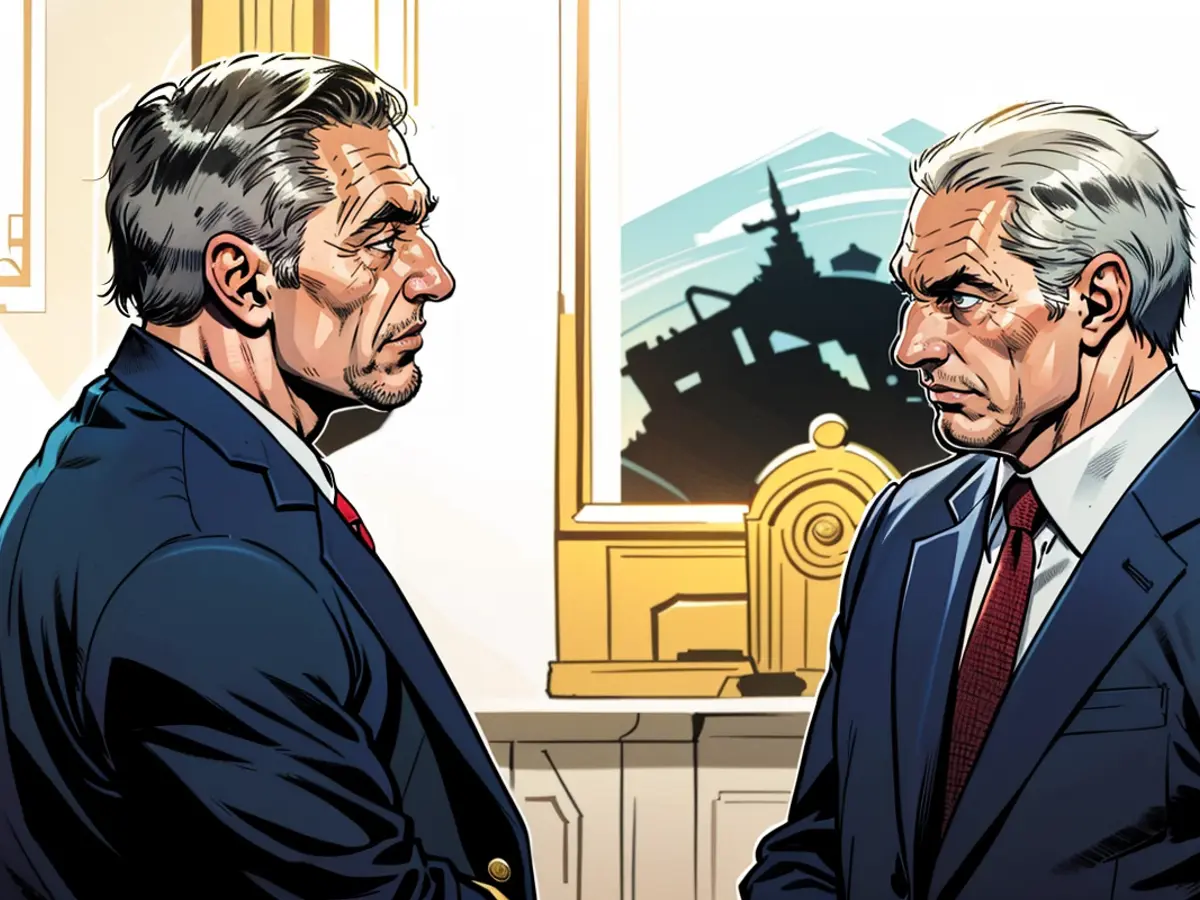Orban's Moscow trip infuriates Washington and the EU
Hungary's Prime Minister Orban makes an unannounced trip to Moscow, causing concern among EU colleagues and the US government.
The US government expressed concern over Hungarian Prime Minister Viktor Orban's surprise trip to Moscow. Orban's behavior towards NATO ally Ukraine, regarding its sovereignty, was described as "counterproductive" and not contributing to peace in the conflict-stricken country by White House Press Secretary Karine Jean-Pierre. "Russia could end this war today by giving up its attack against Ukraine, its sovereignty, and its democracy," she added.
Orban had traveled to Moscow shortly after Hungary took over the EU presidency. He saw the presidency as a peace mission, Orban stated during a press conference with Putin. The isolated Russian state leader thanked Orban for attempting to improve relations between his country and Europe but was only willing to discuss "nuances" of Russian proposals for peace.
The European Union emphasized that Orban did not have a mandate for negotiations with Russia. "Whoever truly wants peace does not shake hands with a bloodstained dictator but supports Ukraine with all their might," wrote Lithuania's President Gitanas Nauseda, comparing Orban's appearance to the appeasement policy towards Nazi Germany in the 1930s: "Appeasement will not stop Putin."
German Chancellor Olaf Scholz clarified that Orban represented Hungary, not the EU, in talks. Finnish Prime Minister Petteri Orpo called Orban's actions "disconcerting": The visit demonstrated the "disregard for the tasks of the EU presidency and undermines the interests of the European Union."
Putin demands Ukrainian surrender
Putin stated that he had discussed the situation in Ukraine with Orban. The Russian president reiterated his stance that his proposals were the key to resolving the conflict. Putin demanded the complete withdrawal of all Ukrainian soldiers from the Russian-occupied Ukrainian territories. Accepting these conditions would amount to a Ukrainian surrender.
Orban acknowledged that the positions of the governments in Kiev and Moscow were still far apart. "Many steps are needed to end the war, but we have taken the first step towards restoring dialogue," the Hungarian prime minister said in Moscow.
Shortly before his Moscow trip, Orban had visited Kiev, urging President Volodymyr Zelensky to consider a ceasefire with the aggressor Russia.
Orban dependent on Putin?
Orban has increasingly taken a Russia-friendly and Ukraine-critical stance among EU countries in recent times. In other matters, the right-wing populist often takes a confrontational approach towards Brussels. The EU Commission has imposed sanctions on Hungary multiple times, including for violations of democratic principles within its own borders.
The regular Hungarian EU presidency placed Orban under the slogan "Make Europe Great Again" (Make Europe Great Again) and played on the slogan of former US President Donald Trump (Make America great again). The controversial Trump, who is known for numerous false statements, has good relations with Orban.
Orban is considered the EU government head who is most inclined towards Putin by all EU diplomats. The image of a peacemaker does not diminish Orban in the eyes of EU diplomats. They say that Orban's goal is only to continue to receive favorable Russian gas and oil at advantageous prices. Hungarian energy supply is significantly dependent on Russia: 85% of Hungarian gas imports come from Russia; for oil, it is 65%.
- Amidst concerns from the EU and the US government, Hungary's Prime Minister Viktor Orban visited Moscow, following Hungary's assumption of the EU presidency.
- German Chancellor Olaf Scholz clarified that Orban represented Hungary, not the EU, in his talks with Russian President Vladimir Putin.
- Despite the EU's stance that Orban did not have a mandate for negotiations with Russia, Orban met with Putin, emphasizing his role in attempting to restore dialogue and improve relations between Russia and Europe.
- Hungary's heavy reliance on Russian gas and oil imports, with 85% of gas and 65% of oil coming from Russia, has raised questions about Orban's true motives in his approach to Russia and politics towards Ukraine.








